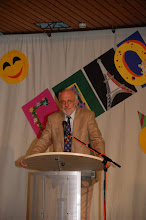By Simon Caldwell
13 November 2009

Hans and Sophie Scholl pictured with Christoph Probst. All three were beheaded by the Nazis on 22 February 1943
German academics have published research to show that their country's most revered heroine of the anti-Nazi resistance was inspired by the writings of Cardinal John Henry Newman.
They have identified the writings of Cardinal Newman as having an influence in persuading Sophie Scholl to defy Adolf Hitler.
Sophie was just 21 years old when she was beheaded for circulating leaflets urging students at Munich University to rise up against "Nazi terror". She is today celebrated in Germany, with two films about her life, her face appearing on postage stamps and nearly 200 schools named after her. She was also voted "woman of the 20th century" by readers of Brigitte magazine, and a popular 2003 television series called "Greatest Germans" declared her to be the greatest German woman ever.
Jakob Knab, a historian of the White Rose resistance movement, to which Sophie belonged, and Professor Günther Biemer, the leading German interpreter of Newman's works, have used diaries and letters to show that Sophie's actions may have resulted partly from the influence of Newman's "theology of conscience".
Mr Knab's findings are outlined in full for the first time in the autumn edition of the German magazine Newman Studien in an essay called "We Will Not Sleep: We Are Your Bad Conscience: The Reception of Newman by the White Rose and Its Effects".
Sophie was introduced to Newman by Theodor Haecker, a German scholar forbidden to publish by the Nazis but who continued to translate Newman's works from English to German. The White Rose movement then began to oppose Nazism by circulating thousands of leaflets telling Germans they had a "moral duty" to defy Hitler, the "messenger of Anti-Christ".
The movement also condemned the persecution of the Jews as the "most frightful crime against human dignity, a crime that is unparalleled in the whole of history".
The language of some of the pamphlets directly echoed the theology of Cardinal Newman, who died in Birmingham in 1890 and who is likely to be beatified during a visit to Britain by Pope Benedict in September next year.
According to Mr Knab, Sophie introduced Newman to her friends and to her boyfriend, Lieutenant Fritz Hartnagel, an officer in the German army. "For some friends of the circle of the White Rose Newman's theology of conscience was a marking factor," wrote Mr Knab.
"When on May 20 1942 Sophie Scholl and her fiancée saw each other for the last time she gave him two volumes of John Henry Newman's sermons among other [books] as a farewell present."
Lt Hartnagel was then deployed to the Eastern Front and saw corpses of soldiers murdered by their German guards, and began to hear reports of mass killings of local Jews.
"What a fallacy it is to take nature as our model for our actions and to describe its cruelty as 'great'," he later said in a letter to Sophie in July 1942. "But we know by whom we were created and that we stand in a relationship of moral obligation to our creator. Conscience gives us the capacity to distinguish between good and evil."
Mr Knab has identified Hartnagel's words as taken verbatim from a sermon given by Newman called "The Testimony of Conscience".
Cardinal Newman taught that conscience was an echo of the voice of God enlightening each person to moral truth in concrete situations.
Lt Hartnagel's convictions led him to protest against the mass murders of Jews. After Sophie's death he visited her parents, imprisoned under the Sippenhaft laws that allowed an entire family to be jailed for the crimes of one member, and gave them a collection of Newman's sermons called God and the World.
Newman Studien also contains a paper on the White Rose by Fr Dermot Fenlon, a priest of the Birmingham Oratory.
http://www.catholicherald.co.uk/articles/a0000688.shtml
